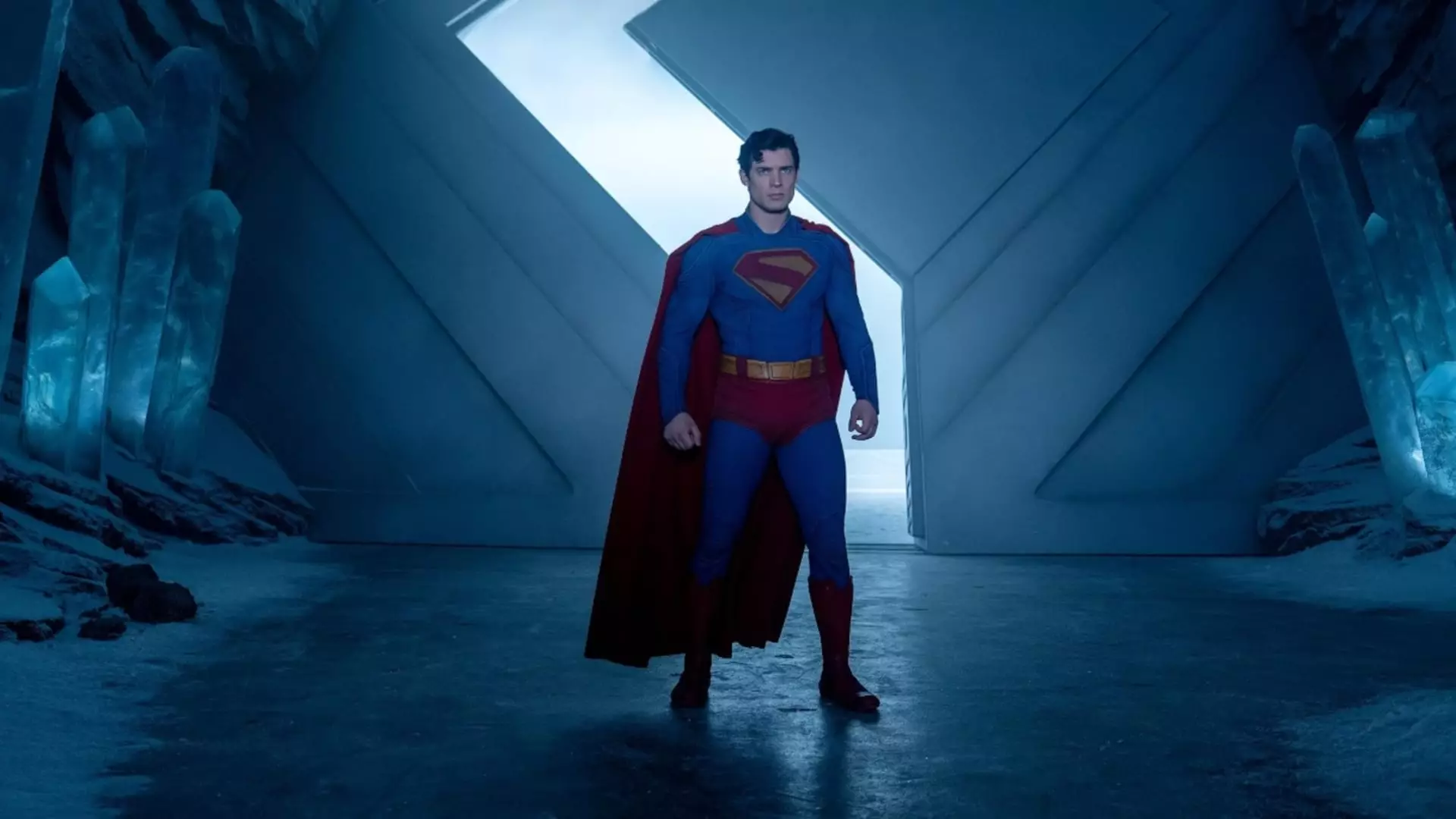The latest Superman reboot has generated significant buzz, marking what some might view as a promising start, yet it also faces the daunting task of living up to age-old expectations and industry pressures. While initial ticket sales and preview numbers seem encouraging—reporting the third-best Thursday night performance for a DC film—the true test lies in whether this film can sustain its momentum over time. It’s tempting to celebrate the numbers, but one must critically analyze what they truly signify within the broader cultural and cinematic landscape. Are we witnessing a genuine revival of superhero storytelling that can challenge Hollywood’s predictable franchise fatigue, or are these figures merely a temporary spike driven by hype and nostalgia?
It’s vital to recognize that high preview numbers, though promising, still rest on the surface. They do not guarantee long-term success or cultural impact. The film’s opening weekend projections—between $130 million and $140 million—are competitive, yet they are not necessarily indicative of a seismic shift. Instead, they may reflect a cautious optimism rooted in past film performances. The industry has conditioned audiences to expect spectacle over substance, which often inflates initial box office returns but leads to quick burnout. If the film relies solely on nostalgia or big-screen spectacle, it risks falling into the pattern of soulless franchise cash grabs.
The Politics of Reinvention: Is This a Genuine Shift or Just Market Manipulation?
Moving beyond the numbers, the strategic overhaul led by James Gunn and Peter Safran promises a reinvigoration of the DC universe, but at what cost? Their clear intention to reboot the franchise with a 10-year plan signals ambition, yet it also invites skepticism. Reshaping a beloved character like Superman cannot merely be a marketing ploy or a superficial rebranding. It demands authentic storytelling that resonates with contemporary audiences, reflecting our societal values and concerns.
The industry often conceives these projects as tools for corporate branding more than meaningful cultural dialogues. The emphasis on “hopeful stories” and “thematic renewal” might sound promising, but how genuine can these attempts be if they conform to existing Hollywood formulas? The danger lies in superficial attempts at reinvention that prioritize box office headlines over authentic cultural reflection. Superhero films are now a battleground where social issues are superficially acknowledged, often reducing complex topics to caricatured narratives. It’s crucial to question if this new Superman will serve as a mirror for genuine social progressiveness or merely a sanitized product packaged for superficial market appeal.
Critics, Fans, and the Future: Will This Be a Turning Point or Another Disappointment?
Critics’ reception, with an 83% rating from hundreds of reviews, offers some optimism, but critical consensus must be viewed with scrutinous eyes. Critics often respond favorably to productions that align with industry trends and political correctness—yet, does this rating reflect true cinematic quality or merely a calculation aligned with current corporate narratives? Fans’ expectations run high, but popular approval does not necessarily equate with cultural significance or artistic merit.
The true measure of success will be how this film influences future DC projects and whether it manages to foster substantive dialogue rather than superficial escapism. The hope is that this new era will prioritize diversity, social awareness, and complex storytelling over predictable hero tropes. But given Hollywood’s tendency to chase safe bets, it’s reasonable to remain skeptical. Will this reboot carve out a space for meaningful change within the superhero genre, or will it simply be another spectacle that fades into the background once the hype subsides? Time, and honest critique, will be the ultimate judges.
Holistically, the new Superman project exemplifies Hollywood’s complex relationship with cultural relevance, commercialism, and storytelling innovation. While initial numbers paint an optimistic picture, a critical eye reveals that many challenges remain. An industry increasingly driven by spectacle and franchise mindsets risks prioritizing short-term gains over long-term cultural impact. If this reboot truly aims to be a turning point, it must go beyond box office figures and embrace a genuinely progressive, authentic narrative that resonates with a society eager for meaningful change, not just entertainment.

